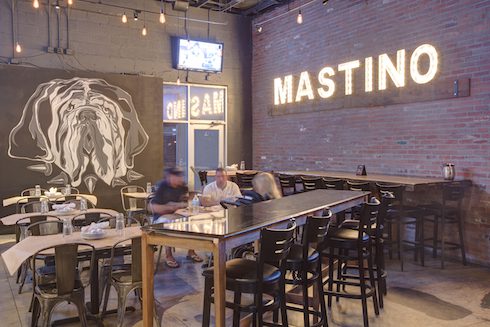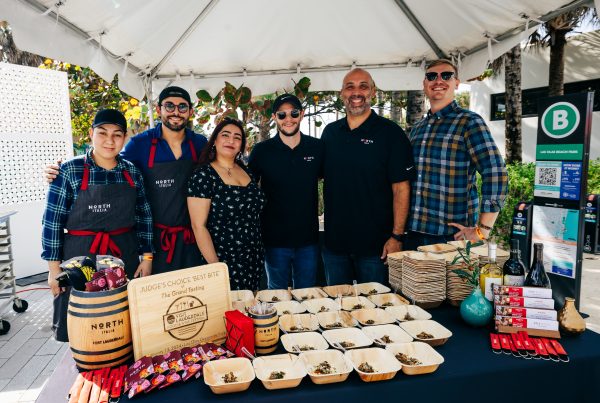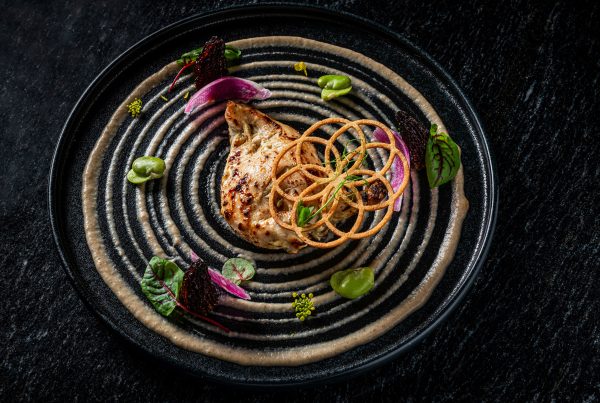Italian soul food warms up downtown Delray.

25 N.E. Second Ave., Delray Beach, 561/921-8687
HOURS: Tuesday to Thursday 5 to 11 p.m., Friday and Saturday 11 a.m. to midnight, Sunday 11 a.m. to 10 p.m.
PRICES: Entrées $11.50 to $19
WEBSITE: mastinowoodfire.com
The origins of soul food are deep in the experiences of African-Americans in the United States.
As slaves, their sustenance was based on what they could grow and forage for themselves, on ingredients considered not grand enough for their masters’ tables. A variety of wild greens, beans and tubers, offal and game, and odd bits of animals were the building blocks of a budding cuisine.
Though the actual term “soul food” wasn’t coined until the 1960s, it could certainly be argued that the soul those black cooks put into their cooking (not to mention a considerable amount of culinary skill) was at least in part responsible for transforming such humble ingredients into what is now celebrated as an ingenious and delicious regional American cuisine.
I bring all this up because for a restaurant to call its cooking “soul food” is to shoulder some pretty heavy weight, to have your marketing people write a check that your kitchen had better be able to cash. Mastino, which late last year took up residence in a corner of SoLita in downtown Delray, calls its cookery “Italian soul food.” And, yes, its kitchen can cash that check. Mastino brings a hip, urban, gastropubby ethos to the casual, American-style Italian restaurant.
Think polished concrete flooring; brick accent walls; towering ceilings crisscrossed with blackpainted beams and ductwork; a young, energetic and personable staff; and a menu devoted mostly to small plates and Neapolitan-style pizzas.

You easily can make a meal of the small plates here, and I highly recommend it—though it would be a shame to miss out on Mastino’s excellent, thin-crusted pizzas. Clams rarely get any better than when swimming in a briny broth creamily emulsified with white wine and extravirgin olive oil and spiked with copious amounts of garlic.
An “old school” meatball was a primer on the pleasures of the comforting and familiar, a fluffy, well-seasoned orb ringed with a bright-tasting tomato sauce, a dollop of milky ricotta and a scattering of thickly julienned basil, which gave the dish a sprightly summertime freshness despite unseasonably chilly temperatures outside.
A “piccolo” serving of ossobuco was barely smaller than what goes for $25-plus at most Italian restaurants. A blessedly reasonable $14 brought forth two small veal shanks, their meat so tender as to require neither teeth nor gums, their savory braising liquid rich with gelatin and studded with fat chunks of carrot. The only niggling complaint involved the kitchen’s heavy hand with pepper, which was so biting it threatened to throw the dish out of balance.
A stack of “crispy” eggplant slices breaded and fried as stiff as a board, layered with tomatoes and fresh mozzarella, and drizzled with balsamic vinegar and EVOO, was more intriguing in conception than reality, the eggplant tasteless and chewy, though admittedly crispy. If you’re looking to consume a few extra calories, try the oven-roasted mac-n-cheese instead, a gut-busting portion of shell pasta with fontina, mozzarella and ricotta cheeses, a crunchy breadcrumb topping and a light scent of truffle oil.
We don’t do pizza shaming in these pages, but it would truly be shameful not to sample at least one of Mastino’s Neapolitan-style pies, which come out of an oak-fired oven burning at a hellish 900 degrees. Pizzas come either red (with San Marzano tomato sauce) or white (no sauce but lots of cheese). Ours came as a thin, puffy, pleasantly chewy crust topped with mozzarella, sweet Italian sausage and faintly bitter broccoli rabe, a combination that can scarcely be improved upon.
Also from the wood-burning oven was half an herb-crusted chicken, brined to keep it juicy, with lightly charred skin and thick planks of rosemaryspiked potatoes. As with the ossobuco, somebody got a little carried away with the pepper.
Desserts tended toward the simple and familiar—cannoli, tiramisu, that sort of thing. Tiramisu is not made in-house but rather by Old School Bakery. It’s nothing unexpected but a commendable effort, one last fulfillment of Mastino’s promise of “Italian soul food.”







